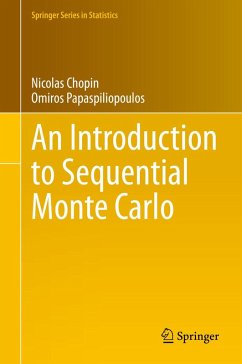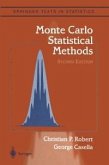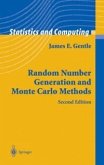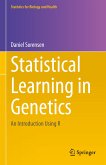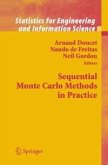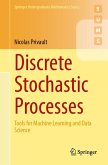The coverage is comprehensive, ranging from the underlying theory to computational implementation, methodology, and diverse applications in various areas of science. This is achieved by describing SMC algorithms as particular cases of a general framework, which involves concepts such as Feynman-Kac distributions, and tools such as importance sampling and resampling. This general framework is used consistently throughout the book.
Extensive coverage is provided on sequential learning (filtering, smoothing) of state-space (hidden Markov) models, as this remains an important application of SMC methods. More recent applications, such as parameter estimation of these models (through e.g. particle Markov chain Monte Carlo techniques) and the simulation of challenging probability distributions (in e.g. Bayesian inference or rare-event problems), are also discussed.
The book may be used either as a graduate text on Sequential Monte Carlo methods and state-space modeling, or as a general reference work on the area. Each chapter includes a set of exercises for self-study, a comprehensive bibliography, and a "Python corner," which discusses the practical implementation of the methods covered. In addition, the book comes with an open source Python library, which implements all the algorithms described in the book, and contains all the programs that were used to perform the numerical experiments.
Dieser Download kann aus rechtlichen Gründen nur mit Rechnungsadresse in A, B, BG, CY, CZ, D, DK, EW, E, FIN, F, GR, HR, H, IRL, I, LT, L, LR, M, NL, PL, P, R, S, SLO, SK ausgeliefert werden.
Hinweis: Dieser Artikel kann nur an eine deutsche Lieferadresse ausgeliefert werden.

